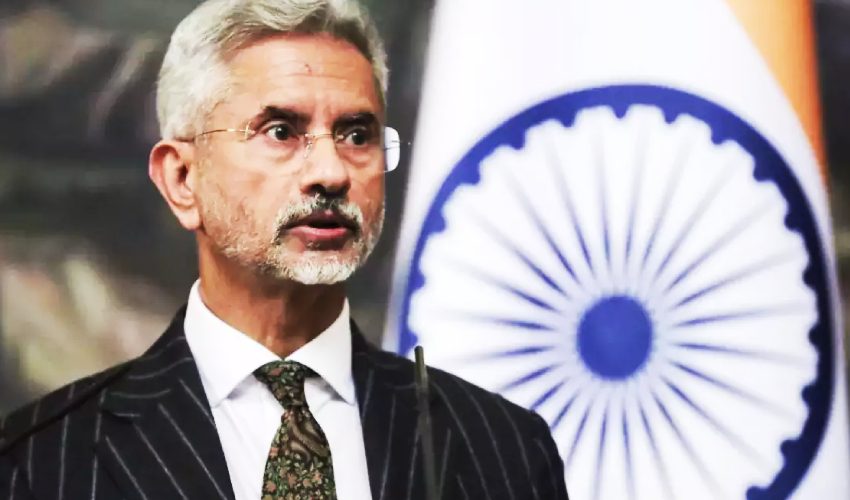India is prepared to resume issuing visas to Canadian citizens but only if it sees progress in the safety of its diplomats in Canada, according to Foreign Minister S Jaishankar.
Visa services were halted by India in September citing "security threats" that were disrupting work at its missions in Canada.
The two countries have been embroiled in a dispute following the murder of a Sikh separatist leader in Canada, leading to a diplomatic row.
Ottawa has previously stated that it takes the "safety of diplomats very seriously".
However, it has not responded to India's specific allegations of threats to its diplomats in Canada.
The strained relations between the two nations were exacerbated when Canadian Prime Minister Justin Trudeau announced in September that Canada was investigating "credible allegations potentially linking" the Indian state to the murder of a Sikh leader.
India forcefully rejected the accusations and described them as "absurd".
Hardeep Singh Nijjar, a Canadian citizen, was shot dead in his vehicle by two masked gunmen outside a Sikh temple in British Columbia in June.
Nijjar had been a vocal advocate for Khalistan or a separate Sikh homeland, a sensitive issue in India due to a violent insurgency for the demand during the 1980s.
Even before tensions escalated, India had expressed concerns about the safety of its officials in Canada, citing threats from Khalistan supporters.
In July, Canada's Foreign Minister Mélanie Joly tweeted that the country takes its obligations regarding diplomats' safety "very seriously" after a poster for a pro-Khalistan rally accused two Indian diplomats of killing Nijjar.
In September, India announced the temporary suspension of visa services for Canadians, citing threats that had disrupted the normal functioning of its high commission and consulates in Canada.
The Canadian high commission also noted that some of its diplomats had "received threats on various social media platforms".
Last week, Canada's foreign minister disclosed that 41 diplomats had left India after India asked Canada to withdraw dozens of its staff, warning it would remove their immunity if they remained.
Canadian officials have described this as a "violation of international law," with the US and UK expressing concerns over the move.
S Jaishankar stated that India's insistence on "maintaining two-way diplomatic parity" was consistent with the provisions of the Vienna Convention on diplomatic relations.
He noted that India's concerns are primarily linked to "a certain segment of Canadian politics and the policies which flow from that," emphasizing that the relationship between the two countries is facing a "difficult phase".
While Canada's visa services are still operational in India, it cautioned that processing times would be impacted by "reduced staffing levels" following the departure of diplomats.
Currently, both Canada and India have 21 diplomats each in the other country.
Prime Minister Trudeau commented that India's crackdown on diplomats was making life difficult for millions of people in both nations.
Canada is home to 1.4 million people of Indian origin, more than half of whom are Sikhs, making up 3.7% of the country's population according to the 2021 census.
Additionally, India sends the highest number of international students to Canada, representing 40% of total overseas students in 2022.
According to Indian government statistics, around 80,000 Canadian tourists visited India in 2021, making Canada one of the top sources of tourism, along with the US, Bangladesh, and the UK.



























